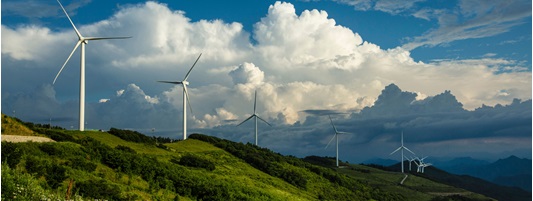Long-term energy scenarios network
Contact us
Send a messageOverview
IRENA’s Long-term Energy Scenarios (LTES) Network provides a global platform to exchange knowledge and good practices in the use and development of model-based long-term energy scenarios (LTES) to guide the clean energy transition. It aims to promote wider and more effective use of LTES in government for energy and climate policy-making.
Key stakeholders involved in the LTES Network are:
- Scenario users within government planning teams and policy-making institutions.
- Scenario developers within government modelling teams or technical institutions supporting government.
The LTES Network focuses and aims to benefit members in the institutional aspects around three areas:

The LTES Network is built on the “Long-Term Energy Scenarios for the Clean Energy Transition Initiative” – a time-bound Initiative that IRENA has run since 2018 under the umbrella of the Clean Energy Ministerial (CEM).
Activities
Members of the LTES Network are given the opportunity to engage with the IRENA’s programmatic activities that include, but are not limited to:
- Workshops & Events
- Regional webinars:
- Thematic webinars:
- Members and partners webinars:
- Publications:
- Scenarios for the Energy Transition: Experience and Good Practices in Africa (January 2023) (Français)
- Long-Term Energy Scenarios and Low-Emission Development Strategies: Stocktaking and Alignment (January 2023)
- Scenarios for the Energy Transition: Experience and Good Practices in Latin America and the Caribbean (July 2022) (Español)
- Benchmarking Scenario Comparison: Key indicators for the clean energy transition (September 2021)
- Scenarios for the Energy Transition: Global experience and best practices (September 2020)
- Long-term energy scenarios: First-year campaign findings (May 2019)
- National Energy Transition Planning Dashboard
Joining the network
Formal membership in the LTES Network is free of charge and open to both government institutions responsible for the development of official scenarios, as well as technical institutions that support governments in the development and use of such scenarios.
Please refer to the Terms of Reference to learn about the LTES Network's context, strategic objectives, activities and membership criteria.
For further information, please contact: ltes@irena.org.
Members of the LTES Network
- Austria
- Bosnia and Herzegovina
- Brazil
- Canada
- Chile
- Colombia
- Costa Rica
- Cyprus
- Denmark
- Dominican Republic
- Egypt
- El Salvador
- Finland
- Germany
- Ghana
- Guatemala
- Italy
- Japan
- Kenya
- Latvia
- Lithuania
- Mexico
- Kingdom of the Netherlands
- Pakistan
- Peru
- Philippines
- Portugal
- Republic of Korea
- Saudi Arabia
- Spain
- United Arab Emirates
- United Kingdom of Great Britain and Northern Ireland
- United States of America
Technical partners of the LTES Network
-
The Energy Research Institute of the Russian Academy of Sciences (ERI RAS)
-
Center for Industrial Research and Systems Innovation of NREL
-
World Resources Institute
-
GET.transform
-
World Energy Council
-
International Energy Agency (IEA)
-
Energy Research Institute of Academy of Macroeconomic Research, China
-
European Commission Joint Research Centre (JRC)
-
State Grid Corporation of China (SGCC)
-
IEA ETSAP Technology Collaboration Programme
-
The World Bank
-
United Nations Framework Convention on Climate Change (UNFCCC)
-
Stockholm Environment Institute
-
Economic Commission for Latin America and the Caribbean
-
Energy Modelling Hub (EMH)
-
European Commission DG ENER
IRENA Insights - Scenarios for the Energy Transition: Global experience and best practices
Related events

6th International Forum on Long-term Energy Scenarios for the Clean Energy Transition
At the 6th edition of its annual flagship International Forum on Long-term Scenarios for the Clean Energy Transition, IRENA brought together scenario practitioners in government, academia, technical institutions, international organizations, and the private sector. The 6th Forum focused on the following Global Network on LTES Thematic Areas outlined in the May 2025- April 2026 Workplan.
The Forum took place at the IRENA Innovation and Technology Centre in Bonn, Germany, from Wednesday 29th and Thursday 30th October 2025 in a hybrid format (on-site and virtual).









